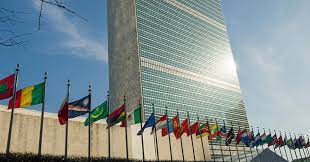
Equatorial Guinea, Gabon and South Sudan are among six world nations that have lost their voting rights in the 193-member United Nations General Assembly because they are all in arrears on paying dues to the operating budget, the UN chief said in a communiqué.
The other countries facing such a punitive measure are Dominica, Venezuela and Lebanon, Secretary-General Antonio Guterres said. Gabon is serving a two-year term on the Security Council though its voting rights there are not affected. The General Assembly decided that other three African countries on the list of nations in arrears — Comoros, Sao Tome and Principe and Somalia — would be able to keep their voting rights because they were granted the same exemption last year.
The UN Charter states that members whose arrears equal or exceed the amount of their contributions for the preceding two full years lose their voting rights. It also gives the UN General Assembly the authority to decide “that the failure to pay is due to conditions beyond the control of the member,” and in that case, a country can continue to vote.
According to the UN chief’s letter, the minimum payments needed to restore voting rights are $76,244,991 for Venezuela, $1,835,303 for Lebanon, $619,103 for Equatorial Guinea, $196,130 for South Sudan, $61,686 for Gabon, and $20,580 for Dominica. With respect to South Sudan, Martin Wang, an independent researcher and analyst, described the ban as a “setback of the youngest nation” in the international forum. “Basically, this is a setback in the progress that the nation had made in exerting its footprint on the international arena,” Wang added.
